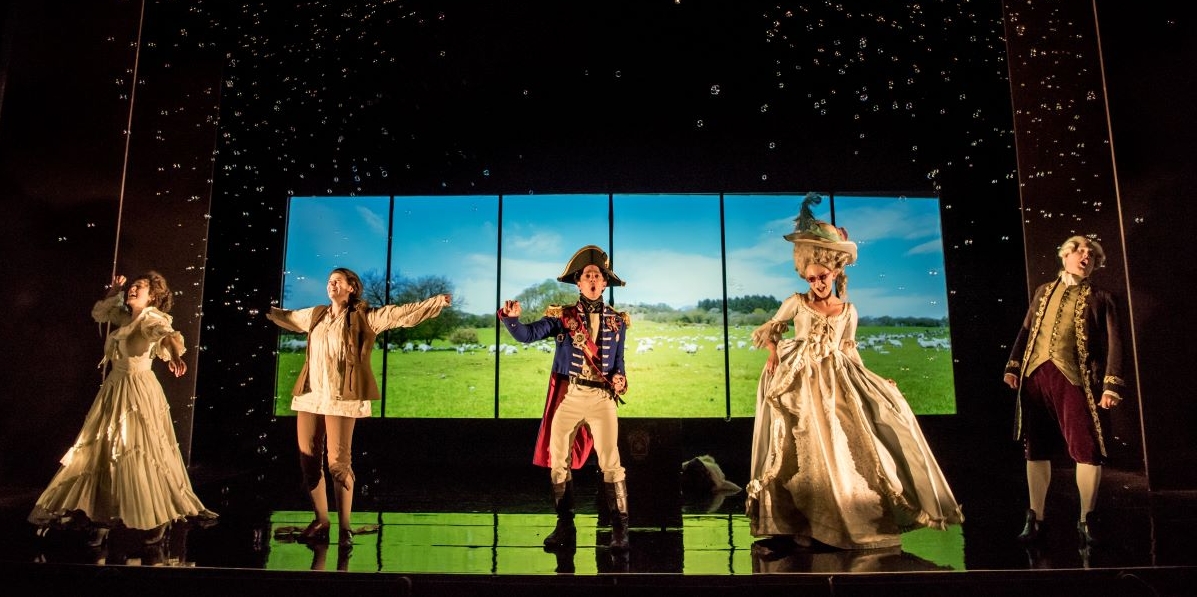Il Re Pastore, like many opera seria works, celebrates the wisdom and virtue of a noble monarch. Faced with a conflict between love and duty, the hero inevitably chooses duty and mercy. No wonder then that the nineteen-year-old Mozart – commissioned by his employer, Archbishop Colloredo of Salzburg, to write an opera for the visit of the Archduke Maximilian in 1777 – turned to a libretto by the moralistic old warhorse of opera seria, Pietro Metastasio. It’s the story of Alexander the Great deposing the usurper Strato and trying to install the rightful king, Abdolomino, on the throne of Sidon. This young man is living in hiding as the shepherd, Aminta. Alexander, assisted by Agenore, a Sidonian noble who has decided to follow the new master, recognises Aminta as the true king, and then tries to persuade him to leave his pastoral idyll and take the throne, and to marry Tamiri, daughter of the defeated Strato. But Aminta loves Elisa, a local beauty, and Tamiri loves Agenore – which leads to a range of dilemmas of love and duty. All these conflicts are resolved by the wisdom and mercy of Alexander.
The structure is very formal with strictly alternating recitative and da capo arias. There are moments of real musical beauty but Mozart’s genius is very restricted by his need to stick with the conventions of opera seria. In this Buxton Festival production, the main role of Aminta – sung by a castrato at the first performance – is sung by the splendid Katie Coventry, a former ENO Harewood artist. She seemed a little stiff in her early scenes – perhaps, as a shepherd happy with her life and unaware of her inheritance, a fixed smile was understandable. But once she was faced with the dilemma of choosing between the throne or her love, she grew into the pain of the difficult decisions that Aminta faces. Her singing of the beautiful ‘L’amero, saro costante’, which does show flashes of what Mozart was later to achieve, was sublime. Ellie Neate and Olivia Carrell were well cast as Elisa and Tamiri, both finding the emotional depth in their music as they face losing the men they love. Joseph Doody was a virile Alexander with a melodious tenor voice that was ideally suited to the fine acoustic of this jewel of an opera house. George Curnow, in the less rewarding role of Agenore, was at his best in ‘Sol può dir come si trova’ as he faces the pain of being separated from the woman he loves.
It is notoriously difficult to bring the very formal stories of opera seria to life for a modern audience. For scenery, this production – directed by Jack Furness – depends on a set of video screens behind the singers. Sometimes these show a single scene, sometimes a set of three separate scenes, but always pictures of pastoral peace and beauty. This mostly worked well enough but there were occasions when, during the two hours, the images did not fit the action going on in front of them and proved distracting. And the final dance was ill-chosen.
Under the baton of Adrian Kelly, the small Northern Chamber Orchestra was in superb form, switching seamlessly between the contrasting tempi of recitative and aria and always leaving space for the singers to shine. This work does not compare with the emotional depth and subtlety of Mozart’s late operas but this Buxton Festival production has many merits and provided real pleasure.

